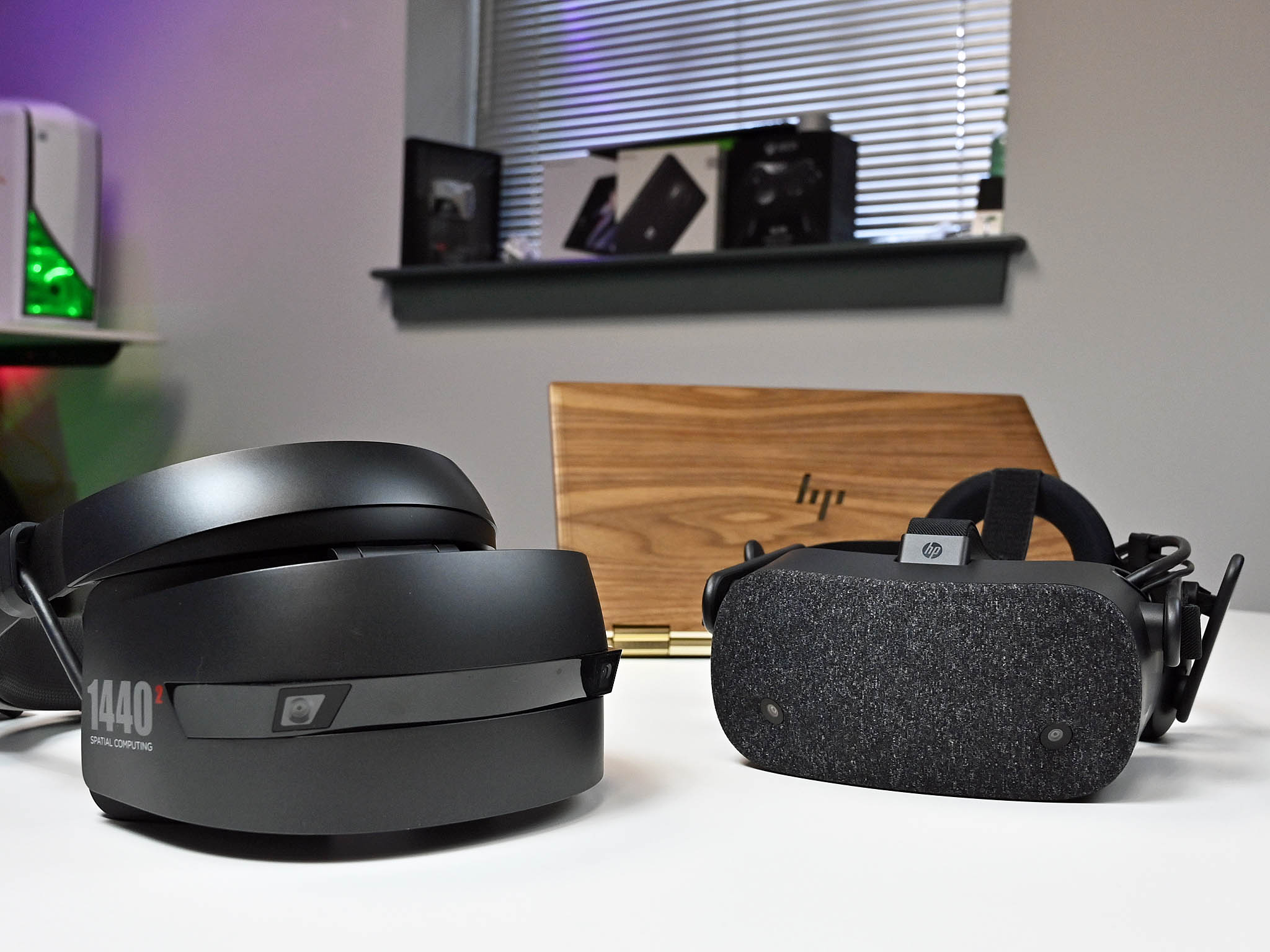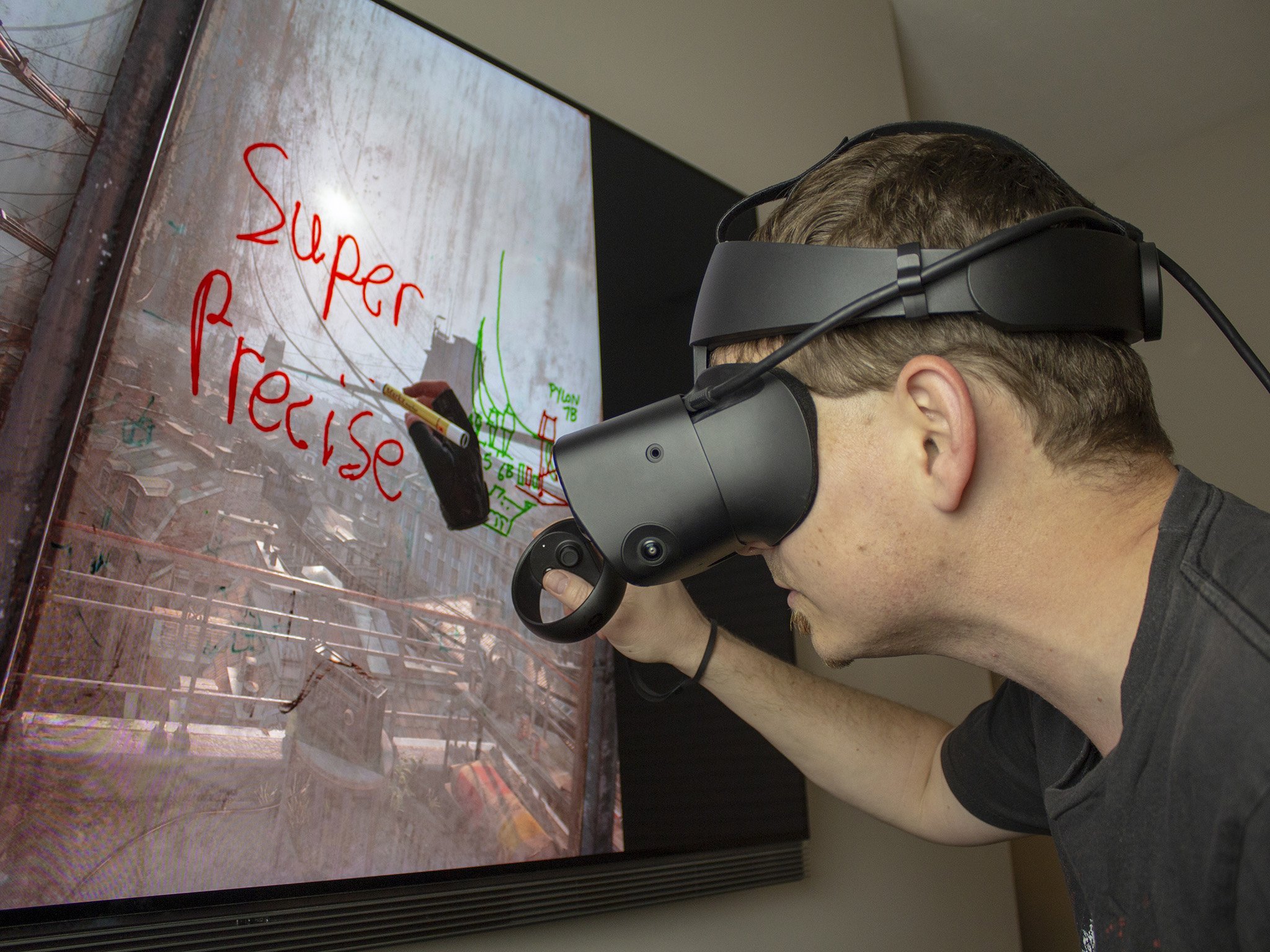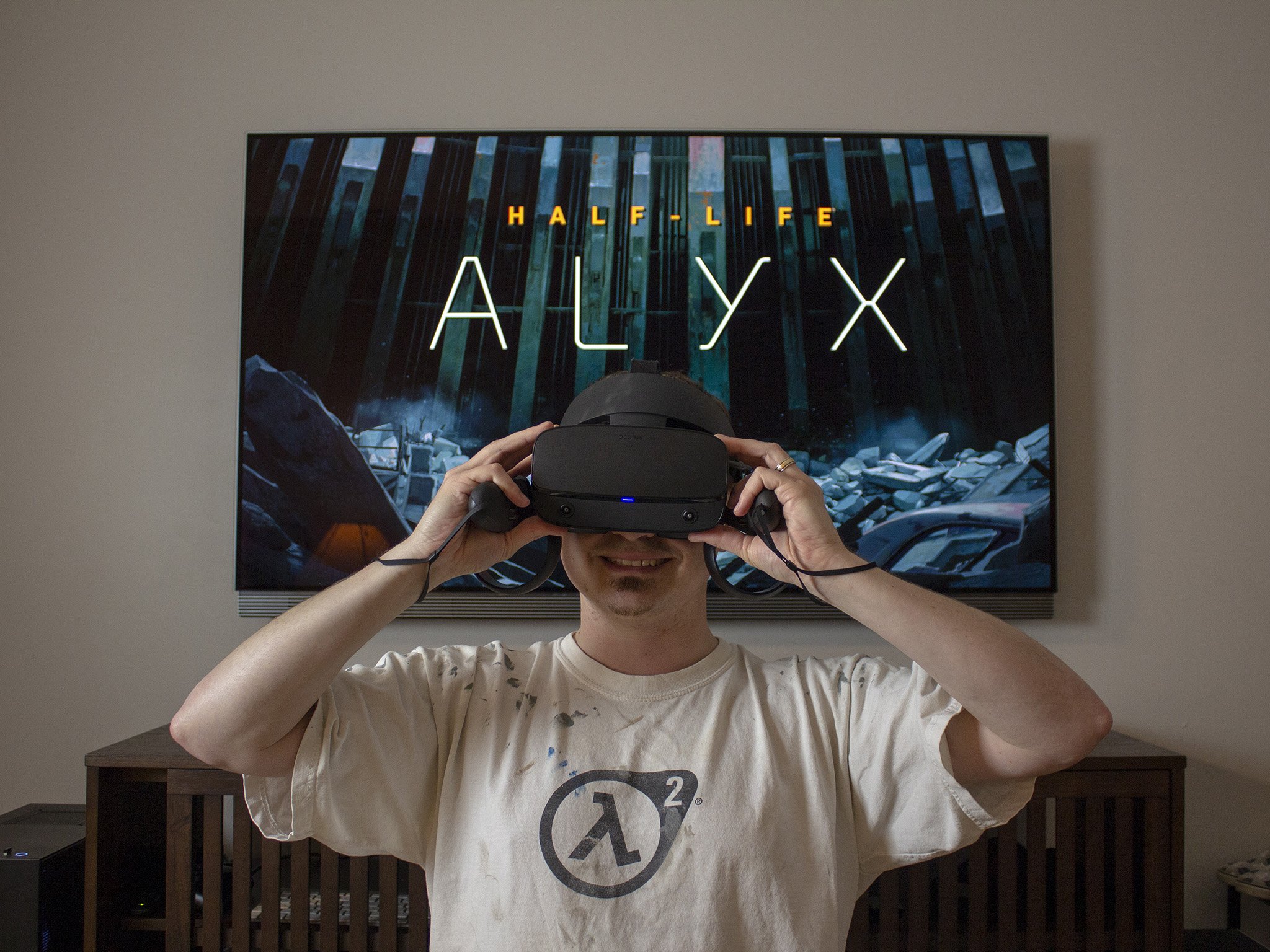Is Microsoft moving Windows Mixed Reality VR/AR towards consumers?
Some recent rumblings might suggest Microsoft may finally be looking towards bringing its impressive Windows Mixed Reality efforts to consumers. But is it too late?

All the latest news, reviews, and guides for Windows and Xbox diehards.
You are now subscribed
Your newsletter sign-up was successful
Recently, Bill Stillwell of Xbox fame left the gaming division to join Windows Mixed Reality, to work on "world-class consumer AR/VR experiences in the Microsoft ecosystem." Interesting.
For a couple of years, Microsoft couldn't resist demonstrating its unprecedented HoloLens augmented reality tech at every single event, it felt like, using Minecraft and other random Xbox properties to showcase the potential therein. Fast forward five years to 2020 and HoloLens remains firmly in the realm of big business and the military, powering next-generation training, awareness, and productivity solutions.
The only "games" on HoloLens remain more akin to small home projects and tech demos. Meanwhile, Microsoft's more consumer-friendly Windows Mixed Reality headsets, affordably priced by comparison, have less than half a dozen decent games to choose from on the Microsoft Store, which is truly abysmal. Thankfully they are compatible with SteamVR, but the experience isn't exactly what I'd call seamless.
Despite steadily trending upwards, VR hasn't exactly taken the world by storm in the consumer space, but could that change in the future? And is Microsoft running the risk of being left behind again? Let's explore.
State of VR
Some estimates put the video game industry value anywhere between $120 to $150 billion, with VR solutions making up around $6 billion of the overall pot in 2019.
There's little information about how much games like Half-Life: Alyx might impact the landscape for VR, which launched just a few weeks ago as of writing. It almost immediately garnered tens of thousands of players on Steam and is more than likely in the running for game of the year 2020 awards.
For context, video game consoles make up around $15 billion in the same report, with PC gaming on $30 billion and mobile titles on a whopping $64 billion. While VR is small right now, it seems to be growing relatively nicely according to analyses from Bloomberg, detailed in the graph above. VR is at least growing at a comparable rate to the early days of mobile and other platforms and is no doubt set to grow ever further.
All the latest news, reviews, and guides for Windows and Xbox diehards.
Even though the industry isn't massive right now, we're clearly seeing an industry trending upwards year over year, despite its cost-prohibitive nature and relative inaccessibility.
Could Microsoft change its attitude towards consumer VR?
Bill Stillwell is known for running the Xbox backward compatibility program among Xbox fans, leading to the procurement of hundreds of high-quality Xbox 360 titles from yesteryear from third-party developers. Stillwell also led similar efforts over at Project Cloud, making me wonder if perhaps his jump to AR/VR could have something to do with bringing game developers to the platform.
Xbox Game Pass has been a powerful vehicle for bringing game developers to the Microsoft Store.
Indeed, Microsoft's Xbox Game Pass has been a powerful vehicle for bringing game developers to the Microsoft Store for PC games, which is shockingly becoming a fairly respectable library of quality PC titles as of late. Not to oversimplify things, but it stands to reason that a feature like Xbox Game Pass for PC could also help bulk up the Microsoft Store for VR titles too, which right now only has some older (albeit brilliant) titles like Arizona Sunshine and Superhot VR. If Xbox Game Pass PC subscribers have access to those games as a result of their subscription, it might increase interest in picking up an associated Windows Mixed Reality headset as well.
To that end, we've also heard that the impressive-looking upcoming flight sim Microsoft Flight Simulator may be in development for virtual reality as well. It makes sense, given that it's a sit-down experience designed for immersion above all else. Flight simulation games like Elite Dangerous were pioneers in the VR space, and it stands to reason that Flight Simulator could be among the first of Microsoft's homegrown VR efforts.
Should they dive in before it's too late?
In recent years, I've had this (admittedly unsubstantiated) idea that Microsoft has become almost afraid of taking risks in consumer tech, regressively sticking to safer paradigms. Burned by Kinect, Microsoft Band, Windows 10 Mobile, Cortana devices, and other products, it feels like Microsoft is taking a "softly, gently" approach to areas of consumer tech that it hasn't historically had involvement in.
Microsoft still has a chance to get involved in consumer VR.
Microsoft has repeatedly affirmed that its efforts in VR remain firmly on PC for the time being, where the vast majority of the users are. Quality VR headsets are expensive, and to get the most out of them, you need a comparable gaming rig to match. Cheaper solutions like some of the lower-end Windows Mixed Reality headsets are accessible, but the experience is far beneath the more premium solutions out there. You have to wear these things after all, and cheap headsets aren't only uncomfortable, they can induce motion sickness more easily.
I have mixed feelings about VR, given that it makes me feel sick, but a lot of these sorts of issues are surely solvable with improved tech. Few companies out there have the technical prowess, engineering talent, and investment capital to advance this technology. Microsoft is among those companies. The longer it waits, the more it hands consumer market share to shady companies like Facebook and its Oculus platform, while also giving PlayStation a significant differentiator in the console space with its PSVR tech.
Microsoft has this staggeringly impressive capacity to underestimate nascent tech that really should be within its purview, could Windows Mixed Reality become the next missed boat like Windows Phone? Microsoft still has a chance to get involved in consumer VR before it's too late.
Xbox
Main

Jez Corden is the Executive Editor at Windows Central, focusing primarily on all things Xbox and gaming. Jez is known for breaking exclusive news and analysis as relates to the Microsoft ecosystem — while being powered by tea. Follow on X.com/JezCorden and tune in to the XB2 Podcast, all about, you guessed it, Xbox!





